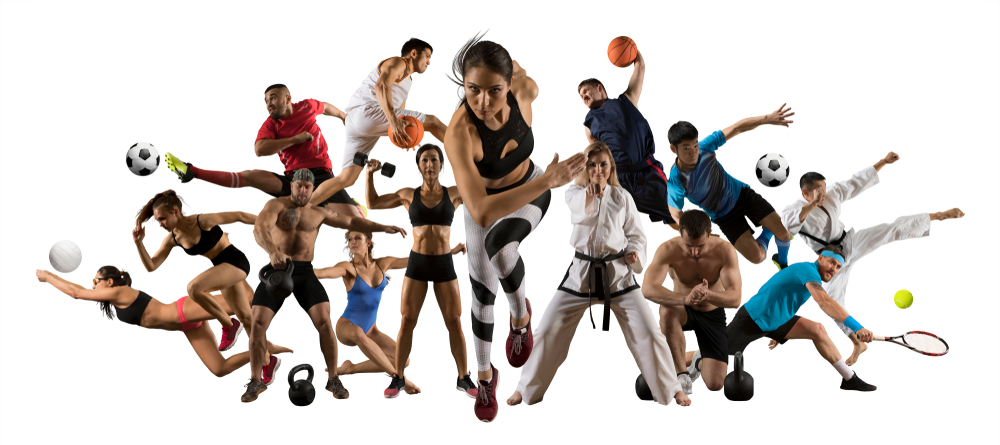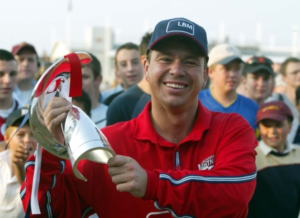
How To Become a Professional Sportsperson
 Being an athlete is a profession that millions grow up aspiring to become. From footballers to gymnasts, the professionals in these sports are the best of the best. One athlete that performed at the very top of his sport is former England international cricketer, Warren Hegg.
Being an athlete is a profession that millions grow up aspiring to become. From footballers to gymnasts, the professionals in these sports are the best of the best. One athlete that performed at the very top of his sport is former England international cricketer, Warren Hegg.
Warren Hegg worked his way through the Lancashire set-up from the age of 15 and by 2002, he was captaining the county. The wicket keeper was a symbol of dedication from a young age and his story shows how the hours in training really do pay off.
Warren provided us with some great advice for those who are looking to turn their hobby into a profession and become a professional sportsperson, here are his four top tips:
1. If you don’t sacrifice for what you want, what you want will be sacrificed.
Nothing in the sports industry comes easy; to succeed you must work hard and be willing to do whatever means necessary to improve your ability and yourself as an individual. As everyone knows, being a sportsperson requires a lot of sacrifices to your social life. It could be waking up at 4.30am to ride out horses, travelling to the opposite side of the country for a 7.45pm kick-off or even just the hours that many sports require you to spend in the gym, sacrifices are always involved. If you want to succeed in your sport, then an awareness of the sacrifices involved is compulsory – you don’t want to be attending Team GB swimming training at midday on Monday and be blissfully unaware that Tuesday’s training starts at 5am!
Warren says: “Passion and commitment. You must be prepared to sacrifice certain elements of life to reach a goal, mine was nights out with my mates and lad’s holidays! However, make sure this doesn’t consume other parts of life. Work hard whilst focusing on improvement and during training/match time but try to turn off in between.”
2. To be an athlete, you must train and eat like an athlete.
It should be no surprise to hear that what you eat and drink is fundamental to your ability to improve as a sportsperson. Monitoring the foods you eat and what they provide to your diet is crucial, especially in the run up to important fixtures and training sessions. If you are serious about becoming an athlete then having a diet plan is highly recommended, as is having a workout plan. No one ever succeeds without effort and practicing, if you believe that you can become a professional sportsperson but choose to skip training and play on the PlayStation instead then this will obviously hinder your progression immensely.
Warren says: “Fitness is important. Having good advice from professional staff will assist in this, it’s imperative in professional cricket these days. Eating the right food groups also aid recovery and preparation for matches and training days.”
3. Believe in yourself and your ability
You know better than anyone else whether you can achieve what you want to. If you believe in your heart of hearts that you are capable, then be confident in it. In sports, being confident in your ability is crucial. It isn’t all about being the loudest in the room, it’s about knowing that you are the best you can be and show that; knockbacks will come and go, but you must reassure yourself that you have the physical and mental strength to bounce back and turn the negative into a positive.
Warren says: “Confidence is something that gets dented with age and experience. Young players come into a team with no history or scars so are liberated in their play. Remember and document good performances and the thought process that go with those experiences.”
4. Enjoy the process
For the majority of sports, attending try-outs and trials is how you are selected for teams. Without doubt, these can be tense times, but it is important to not hinder your chances of success by heaping overwhelming pressure on yourself. Everyone attending these trials are all there with the same aspiration as yourself, to become an athlete, so you must use this wealth of competition as fuel and drive to perform to the best of your ability.
As Warren noted previously, if you haven’t been selected at trials previously then don’t let this knock-back effect how you perform next time around, show determination to go one better this time.
Warren says: “Enjoy the experience and have fun. Anxiety will only hinder performance- take it as a game with your mates or club team and smile.”
Warren went on to explain how important advice is from professional coaches. Trials are a great way to receive specific advice on your ability to improve, regardless of whether your trial was successful or not. They also give you an opportunity to be taught by someone other than your regular coach, which can also improve your performances in the long term. Warren noted the best coach he had in his playing days, Lancashire coach Alan Ormrod.
Warren says “Alan Ormrod gave the confidence to express oneself and not hold back from playing your own way. He would assist us in learning new skills and make every player feel a part of the process.”
Being a professional athlete is an exceptional career, going to work everyday to train in the sport you love sounds like a dream to all sports-lovers. Make sure you check out all our other articles from professionals offering their advice on how to become a professional sportsperson here. Also, we have a section which shows all the opportunities for education workshops, where you could build contacts for the future, as well as job placements where you can be paid to work within sports whilst also striving towards your greater goal of becoming an athlete.
How To Become a Professional Sportsperson – Written By Charlie Parker-Turner (@CParkerTurner)

